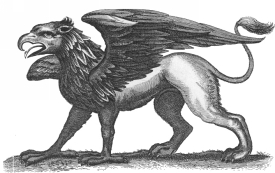The names of mythical animals are indeed found within the Bible. Exotic creatures such as the Leviathan, dragons, unicorns and others appear in books written by Job (the oldest in Scripture), Moses, King David, Isaiah, Ezekiel, and even the apostle John! Are such animal names the product of erroneously translated verses? Is it possible that some of the these believed mythical references are mentioning beasts that no longer exist?
This series will discuss whether or not several legendary beasts named within the pages of Scripture were actually created by God. We will also reveal any symbolism attached to each beast such as who they may represent or any deep spiritual truth they convey. First, however, we need to briefly cover how mythical names ended up being placed within the King James translation.
In 1604, King James I of England commissioned forty-seven scholars with the monumental task of translating ancient manuscripts written primarily in Hebrew, Aramaic, and Greek into English. One of their major obstacles was that Hebrew (used in writing in the Old Testament) was a notoriously hard language to learn and understand. Such difficulties would lead to mythical references in particular.

Accurately translating Hebrew's unique words and phrases, especially those referencing plants and animals, into their equivalence in English, proved especially tough. The translators did the best they could and after seven years of work produced the KJV translation. Although largely succesfull in their efforts, scholars still debate how accurate they translated certain sections, including those that list the names of seemingly imaginary creatures.
Myths Versus Real
A few commentaries argue that some verses refer to strictly mythical creatures. Still others, like the IVP Background Commentary of the Old Testament, state that certain beasts exist only in the spiritual realm. In their commentary on Job 41:1 the IVP states, "Biblically, Leviathan would therefore most easily fit into the category of "supernatural" creature (like cherubim) as opposed to natural or purely mythological."
Many study tools state that most of the believed mythical creatures discussed in this series did exist but that the KJV translators made an error when they tried to match Hebrew words and phrases to an equivalent in English. Most modern translations of God's word attempt to correct these errors.
Evidence does suggest that the mythical beasts referred to in Scripture are not the stuff of legend and tall tales but rather were quite real. In his pivotal book "The Biblical Basis for Modern Science," Henry Morris states the following regarding the idea that some creatures in God's word are indeed mythical.
"The biblical writers mention at least 160 different specific animals by name, and always the descriptions seem quite accurate, except for these few . . . (the behemoth, dragons, etc.).
"The latter are apparently also intended by the writers as real animals . . ." (Chapter 12, section "Dragons and Unicorns").
The possibility exists that some mythical beasts, such as the behemoth and the Leviathan, may have existed just as God's word describes them.
"Thus, it is more reasonable to regard these animals, in most cases at least, merely as extinct . . . known to the patriarchs as living animals but later known only by their ancient reputations" (ibid. Chapter 12, section "Dragons and Unicorns").
Mere Coincidence?
It may not be entirely coincidental that the oldest book in the Bible, Job, lists several mythical animals. Dated around the 1660s B.C., it was written more than two hundred years before Moses penned the books of Genesis, Exodus, Leviticus, Numbers, and Deuteronomy.
Job references five of our seven exotic beasts. He writes about dragons (Job 30:29), the behemoth (40:15), the leviathan (41:1), unicorns (39:9 - 10), and possibly the phoenix bird (29:18).